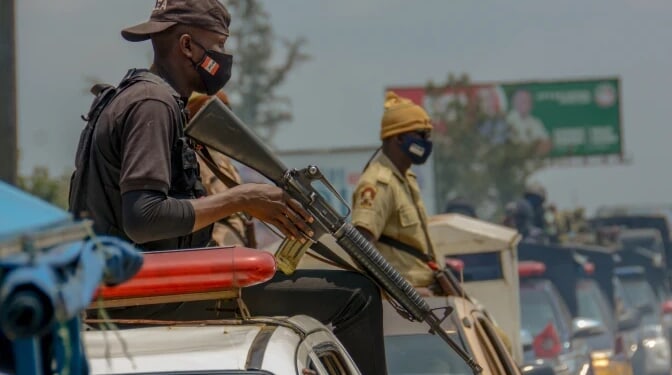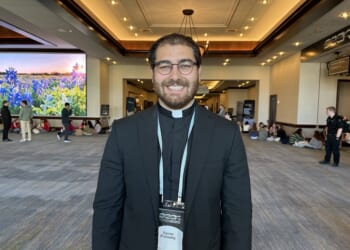ACI Africa, Oct 1, 2025 /
06:00 am
Testimonies of Nigerians kidnapped by jihadist Fulani herdsmen have revealed that hundreds of Christians are still being held by the Islamist group in the infamous Rijana Forest in the southern part of Nigeria’s Kaduna state.
In a statement shared with ACI Africa, CNA’s news partner in Africa, on Sept. 28, the International Society for Civil Liberties and Rule of Law (Intersociety) decried the persecution of Christians allegedly being held near a military post and said the victims must be freed.
Intersociety researchers quoted a report by TruthNigeria earlier this month called “Inside Rijana: Nigeria’s Forest of Hostage” that gathered testimonies from victims of jihadist attacks who reported being marched to the infamous Rijana enclave, a sprawling settlement hidden in the forest, “like a secret village of its own.”
The victims who were held by their kidnappers for months recounted seeing 11 major camps in Rijana, each holding more than 50 captives. They also saw 10 smaller camps with around 30 captives in each of them. The total number of Christian captives believed to be in the village as of August was 850.
Researchers at Intersociety said they find it inconceivable that the captives are held near military bases and that nothing is being done to rescue them.
“No fewer than 850 Christian hostages are languishing inside Rijana Forest, near a Nigerian army base and others in Kachia County, southern part of Kaduna state,” the researchers say, quoting the TruthNigeria report.
Decrying the laxity of Nigerian authorities when it comes to the situation of the Christians still languishing in Rijana, Intersociety researchers said: “The forest is located along Kaduna-Abuja Expressway and home to the Nigerian Army Table Hill Training Area and Army School of Artillery, among other military sites.”
Intersociety researchers noted that Kaduna state is “likely to have recorded the largest number of kidnapped Christians in Nigeria in the past nine or 10 months,” between Dec. 2, 2024, and Sept. 28, “with no fewer than 1,100 cases.”
Victims’ testimonies
The TruthNigeria report details experiences of 32-year-old Esther Emmanuel and her 10-month-old daughter, Anita, who were kidnapped from their home in Gaude village, Kaduna state, on the night of June 4.
The same night, the Fulani terrorists behind the kidnapping also took 35-year-old farmer Maureen Mica.
Describing the Fulani terrorists’ hideout in Rijana, Mica told TruthNigeria: “I saw many big camps, about five, but there could be more. Each of them held over 50 hostages. There were also smaller camps with about 30 people each — more than 10 of those. Esther and I were kept in one of the smaller camps, numbering 30. Each camp is named after its commander. Ours was called Sanda, after the commander.”
She recounted that life inside the camp was brutal and that hostages survived on cornmeal, often without soup, and were regularly beaten.
“We sometimes went seven days without food,” Mica said, adding: “If baby Anita cried, the terrorists flogged both the baby, her mother, and me.”
Confirming the cruelty, Emmanuel told TruthNigeria: “They warned us never to speak, never to look them in the eye, and never to say Christian prayers. Once, when my baby cried, I tried to breastfeed her. One terrorist snatched her from me. Instead of soothing her, he covered her mouth and nose, choking her. I had to wrestle her back.”
“Prayer was our only consolation,” she said. “In our camp, they executed two people because their parents could not pay ransom. In the bigger camps, executions were more frequent. Anytime we heard gunfire, we knew someone had been killed. Four bursts usually meant two people had been executed.”
(Story continues below)
Subscribe to our daily newsletter
Meanwhile, the Intersociety researchers called on the military in Nigeria to go back to how it was before it lost the people’s trust.
The researchers said that before June 2015, the Nigerian military was known for “neutrality, secularity, and semi-professionalism” — qualities they said raised its public trust and confidence among Nigerians.
Over the years, the trust that Intersociety estimates was at 45% “drastically reduced to less than 20% … especially among civilian citizens of the east and members of minority ethnic and religious groupings in the north.”
Intersociety researchers pointed out a lack of neutrality among the military authorities, as the situation is characterized by “romance with jihadist bandits and their allies in the north,” they said.
The group decried “negotiations and pacifications” between the military and jihadist bandits, noting that the situation has made it difficult for the Nigerian government and the country’s security forces and their commanders to successfully extricate themselves from involvement in attacks, especially those targeting Christians.
The researchers said they find it inconceivable that while jihadists are freely brandishing guns in their attacks against vastly Christian populations, Christians on the other hand are not allowed to keep any weapons to defend themselves.
This story was first published by ACI Africa, CNA’s news partner in Africa, and has been adapted by CNA.


















